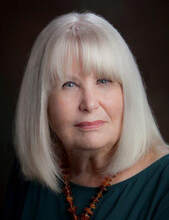No doubt you’ve heard that McDonald’s is selling its restaurants in Russia to a Siberian oil magnate who will reopen them without the Golden Arches or the McDonald’s name. Sounds like still another piece of fallout from the brutal invasion of Ukraine, a business decision in the face of egregious circumstances. In his announcement, the CEO of McDonald’s said, we can’t “ignore the humanitarian crisis caused by the war in Ukraine. And it is impossible to imagine the Golden Arches representing the same hope and promise that led us to enter the Russian market 32 years ago.” But to see it as business as usual would ignore the life-altering impact the opening of the first McDonald’s in the Soviet Union had on Russian society thirty-two years ago. And how the disappearance of its 847 stores across all eleven times zones of the planet’s largest country will surely send tremors through it all over again. I was in Moscow in 1990, not long after the opening of that first McDonald’s. The rest of the world viewed the opening as evidence of a thaw in the Cold War and a crack in the armor that separated the USSR from the West. And for me, an American journalist reporting on glasnost (the opening of the Soviet Union under Mikhail Gorbachev) the block-long lines of Muscovites waiting for their chance to sample a Big Mac was too big a story to miss. I bundled up and joined the line that wound around Pushkin Square in downtown Moscow. With Russians inching forward in front of me and behind, I had a captive audience for my questions. The young couple in front of me was there out of curiosity, to see what the fuss was all about. The middle-aged woman behind me had been twice before, and she told the kids ahead of me that this visit would bend their minds! What I found in that McDonald’s bent my mind as well. I’d been expecting the usual Golden Arches—draped in Soviet drab. Instead, under bright lights and the familiar overhead menus stood an army of young men and women in spotless uniforms and McDonald’s caps who SMILED at each customer and asked, “What can I get for you today?” Some of the customers even smiled back! The menu included all the usual McDonald’s fare. Their names were transliterated versions of “Big Mac” or “cheeseburger,” but French fries were the Russian equivalents for “French potatoes.” One oddity was the Russian interpretation for “chocolate milk shake” which translated to “chocolate cocktail.” Standing there in all that glitter and gloss, Muscovites were star-struck. Mickey D had arrived in the Soviet Union, bringing American optimism along for the ride. For the Soviet consumer who was used to the sulking, surly attendants at state stores, McDonald’s was transformative. At the same time, McDonald’s launched another phenomenon—the introduction of clean public restrooms! I once threatened to write a very thin book listing all the clean bathrooms in Moscow (just one, at the Hotel Ukraina!). But after McDonald’s and Pizza Hut and other western chains took root, clean restrooms were expected in any restaurant. Talk about a gift to humanity! How did McDonald’s manage to create the American fast-food experience in the very gray Moscow of 1990? Very intentionally. Early on, they had to import beef from Germany since what was available locally didn’t meet their standards. Eventually they opted to raise their own cattle in Russia. They trained their employees at a special school where smiles and good cheer were part of the required curriculum. And once they established their foothold, eating out in Moscow was forever changed. The Soviet Union fell within months of the opening of that first McDonald’s (though I don’t think they had anything to do with that!), and Russian society was ready to embrace the transformation. When I moved to Moscow in 1995, my flat overlooking the Moscow River was just two blocks from the new McDonald’s on the Arbat at the Garden Ring. Once or twice a month, I would stop on at the end of my workday at the Russian American Press Information Office and carry a Big Mac, fries, and a chocolate “cocktail” home in my “perhaps” bag for dinner. It helped stave off the homesickness of this American ex-pat (who seldom ever stopped at the Golden Arches at home). That same McDonald’s on the Arbat was thriving when I was last in Moscow four years ago. And you could use an app to place your order at the store or call the Russian version of Door Dash to bring it to your flat! Now they’re all gone—but what the Golden Arches wrought in Russia won’t be so easy to erase. Michelle Carter is the former managing editor of the San Mateo Times. Throughout 1995, she traveled across the 11 time zones of the world’s largest country as the U.S. Information Agency’s Journalist-in-Residence in Russia. She is the author of two books, From Under the Russian Snow (Bedazzled Ink Publishers, 2017) and Children of Chernobyl: Raising Hope From the Ashes (Augsburg, 1993).
0 Comments
Leave a Reply. |
Bedazzled Ink AuthorsBlog posts from our authors. Archives
January 2023
Categories
All
|
Books & Imprints |
Information |
Contact |
Proudly powered by Weebly

 RSS Feed
RSS Feed